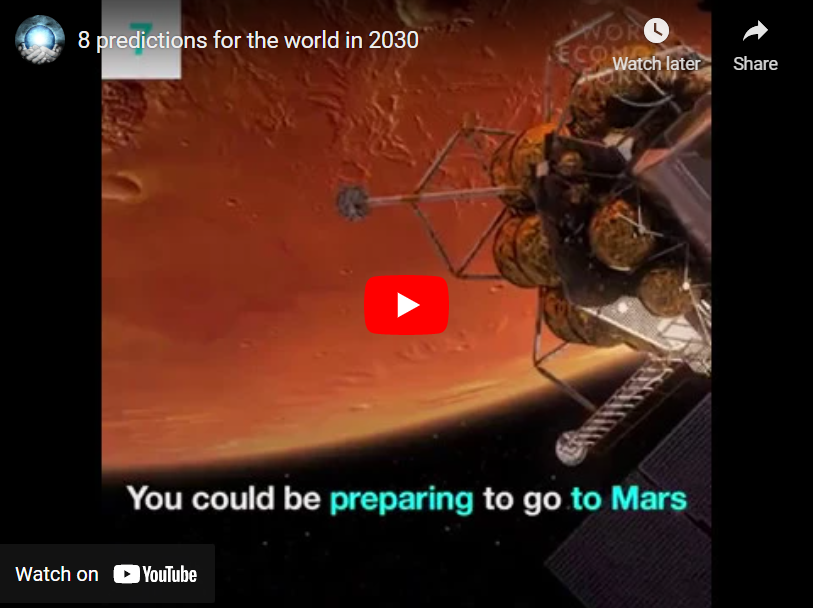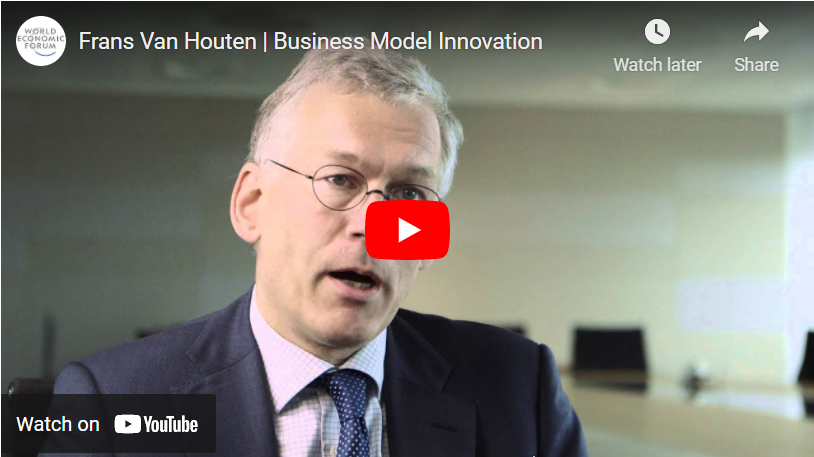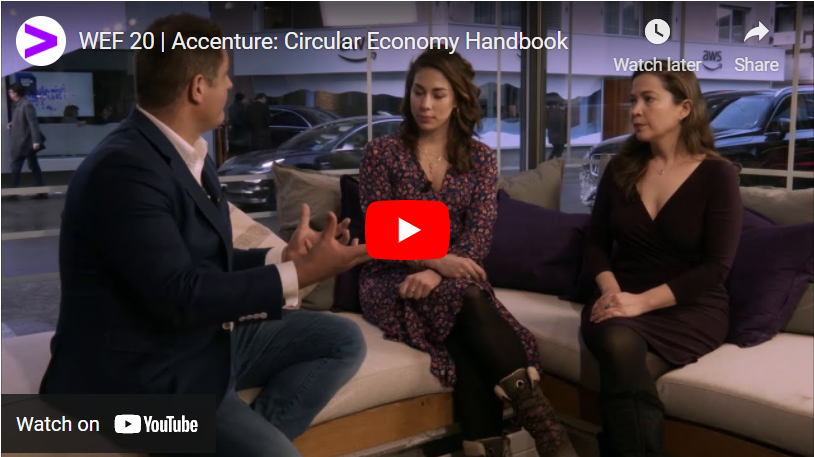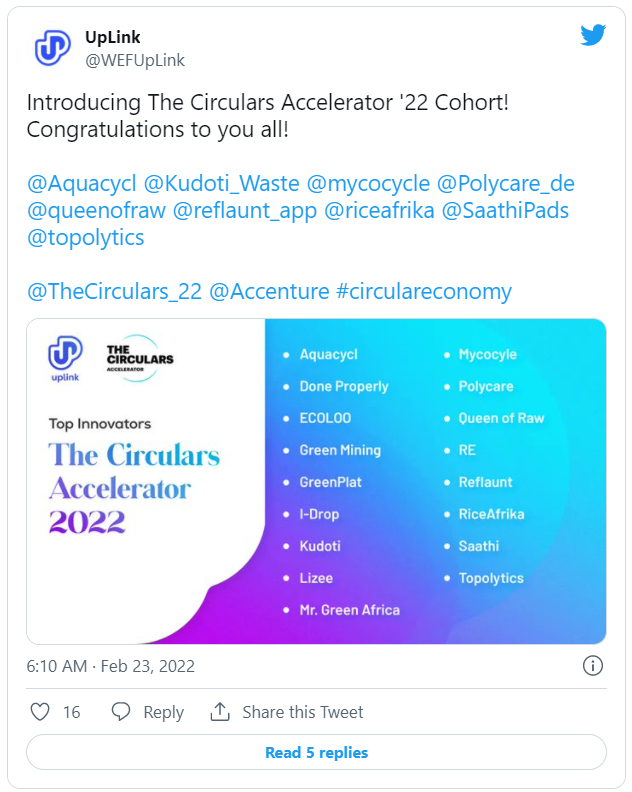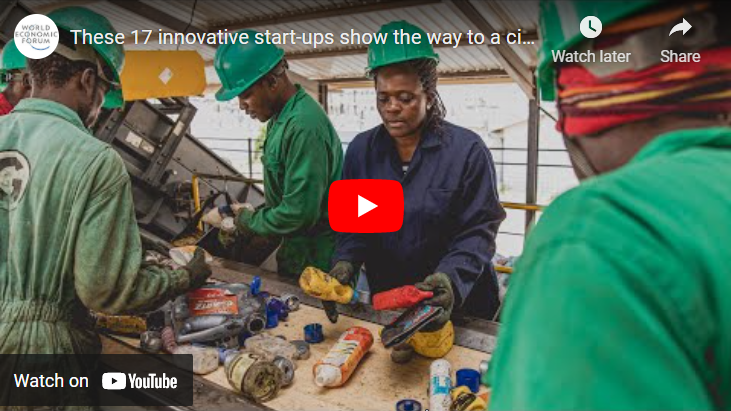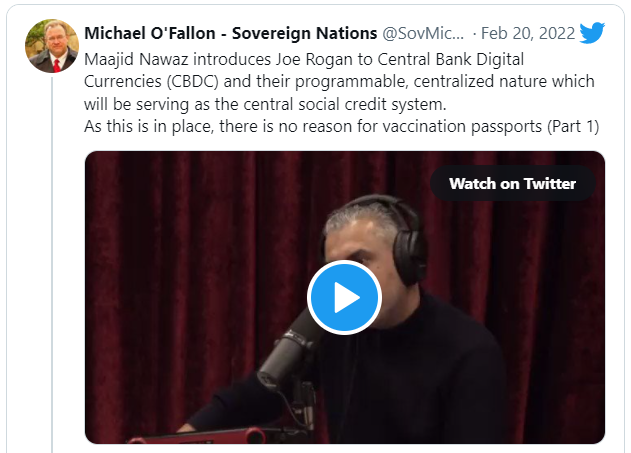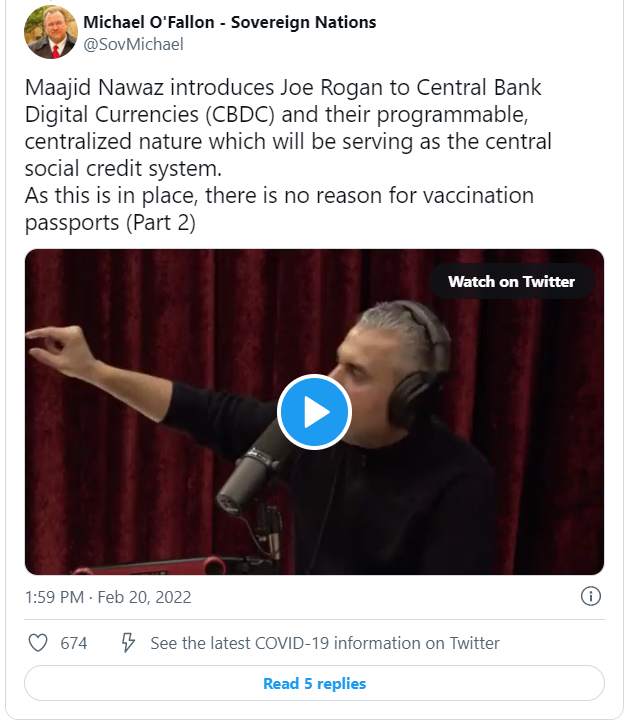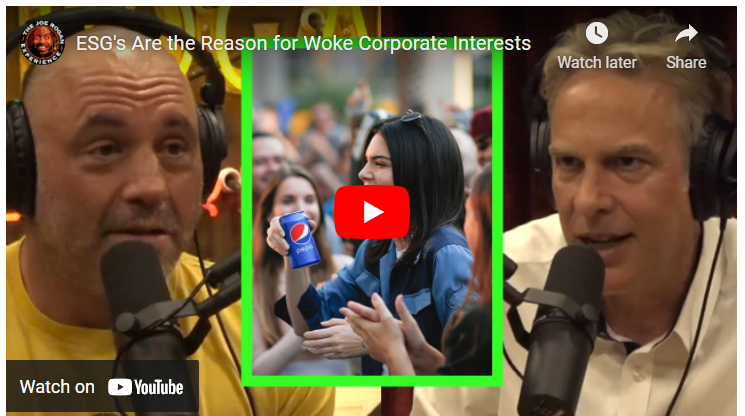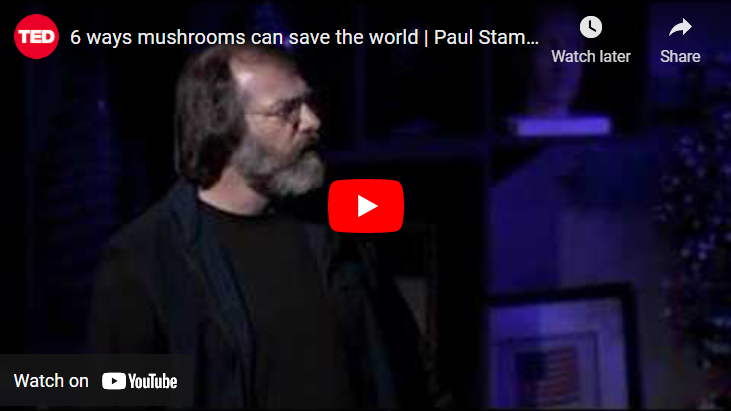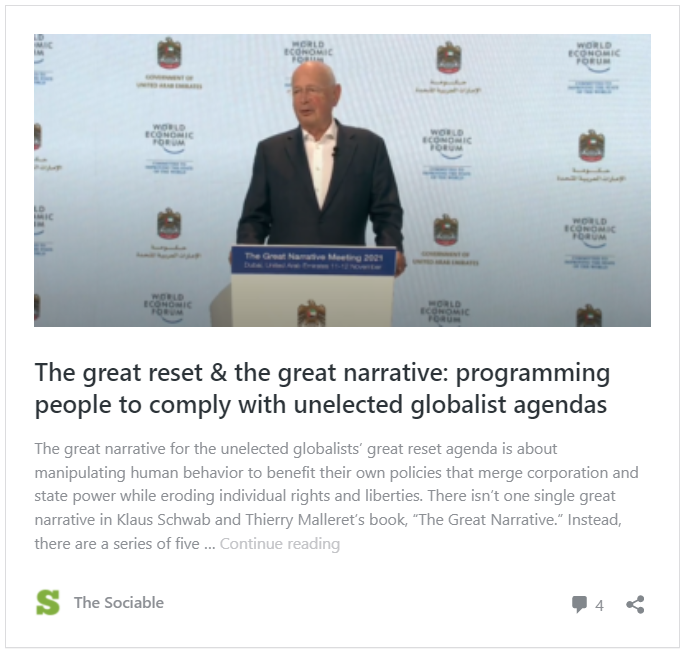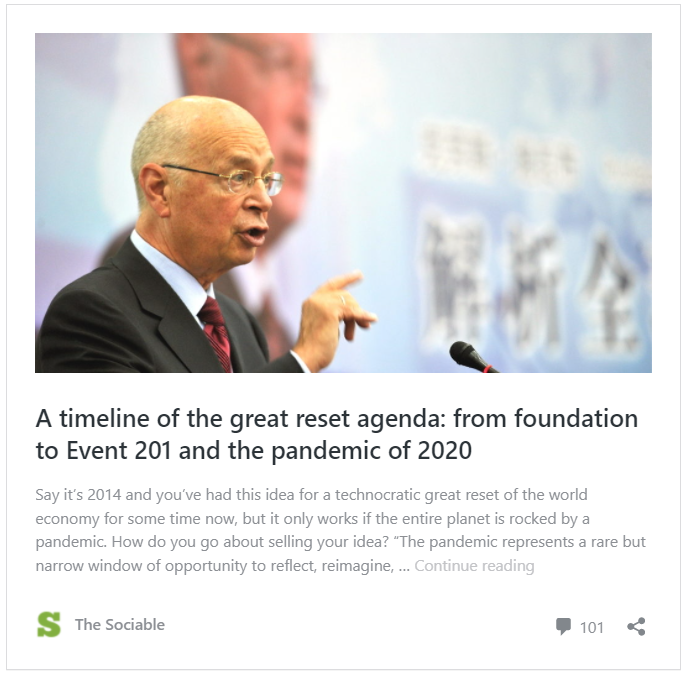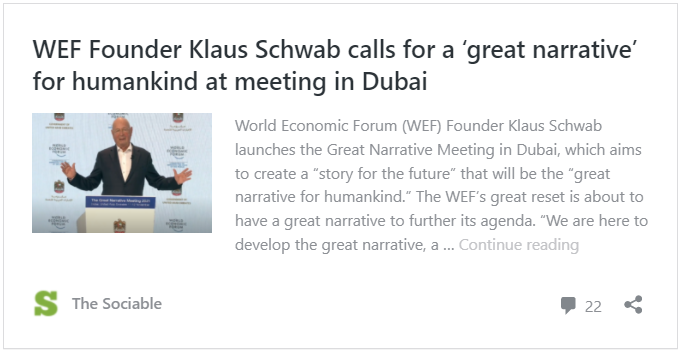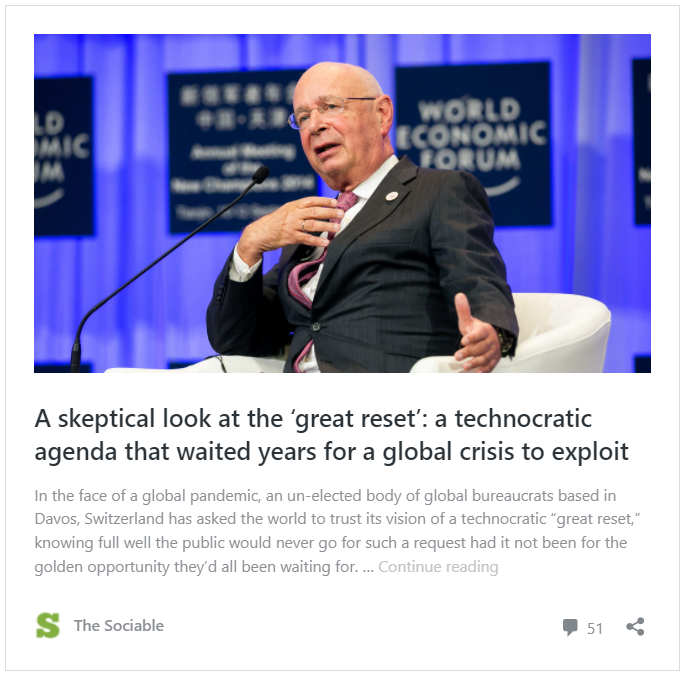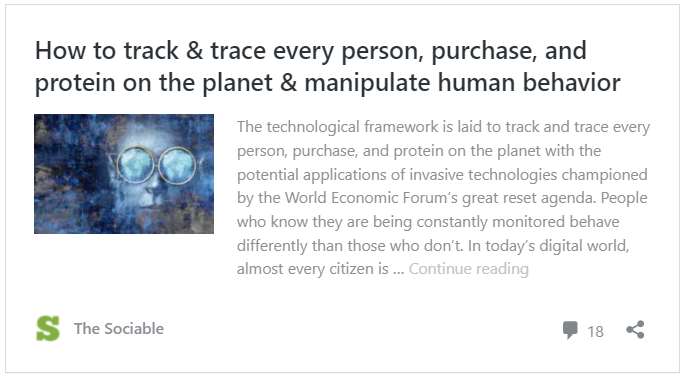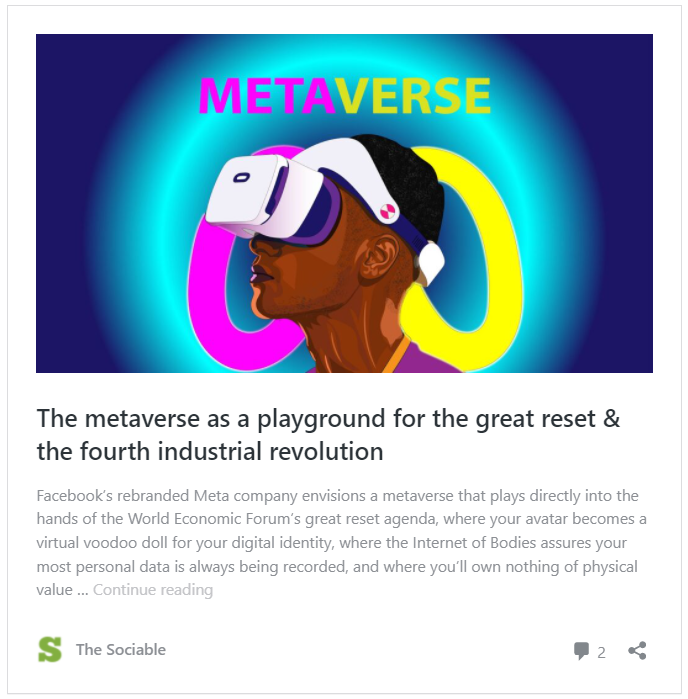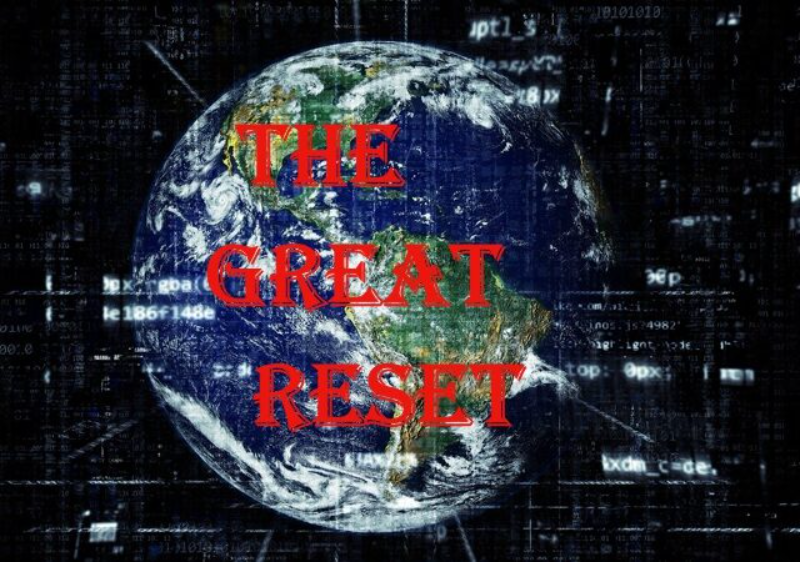
The great reset needs the circular economy to render all products as services, so ‘you’ll own nothing & you’ll be happy’
The circular economy is a top-down agenda coming from unelected globalists looking to reshape the world in their image: perspective
The great reset needs the circular economy to render all products as services in order to advance the “you’ll own nothing and you’ll be happy” agenda.
According to the Davos Agenda blog post “8 Predictions for the World in 2030,” the very first prediction states, “All products will have become services” thanks to the circular economy.
The blog post is based on an essay written by World Economic Forum (WEF) Young Global Leader and Danish MP Ida Auken that was published in Forbes in 2016 titled, “Welcome To 2030: I Own Nothing, Have No Privacy And Life Has Never Been Better.”
“All products will have become services” — 8 Predictions for the World in 2030, WEF, 2016
“Welcome To 2030: I Own Nothing, Have No Privacy And Life Has Never Been Better” — WEF Young Global Leader & Danish MP Ida Auken, 2016
“Welcome to the year 2030. Welcome to my city – or should I say, ‘our city.’ I don’t own anything. I don’t own a car. I don’t own a house. I don’t own any appliances or any clothes,” writes Auken.
“Everything you considered a product, has now become a service,” she adds, while giving thanks to “the breakthrough of the circular economy.”
The circular economy promises to bolster sustainability by abandoning the linear value model of “take, make, waste” and adopting a circular model of “take, make; take make,” according to Accenture.
“In circular economy business models, I would like products to come back to me as the original designer and manufacturer, and once you get your head around that notion, why would I actually sell you the product if you are primarily interested in the benefit of the product?” — Frans Van Houten, WEF, 2016
“Maybe I can stay the owner of the product and just sell you the benefit as a service” — Frans Van Houten, WEF, 2016
With the circular economy, there is a heavy emphasis on recycling and reusing materials instead of using them once and throwing them away.
Sounds great, right?
But beneath the surface, the circular economy’s Product as a Service business model ensures that you and I will truly own nothing while corporations retain ownership of all products they rent out to us as services.
“Why would I actually sell you the product if you are primarily interested in the benefit of the product?” — Frans Van Houten, WEF, 2016
As Royal Philips Electronics CEO Frans Van Houten explained to the WEF in 2016:
“In circular economy business models, I would like products to come back to me as the original designer and manufacturer, and once you get your head around that notion, why would I actually sell you the product if you are primarily interested in the benefit of the product?
“Maybe I can stay the owner of the product and just sell you the benefit as a service,” he added with a grin.
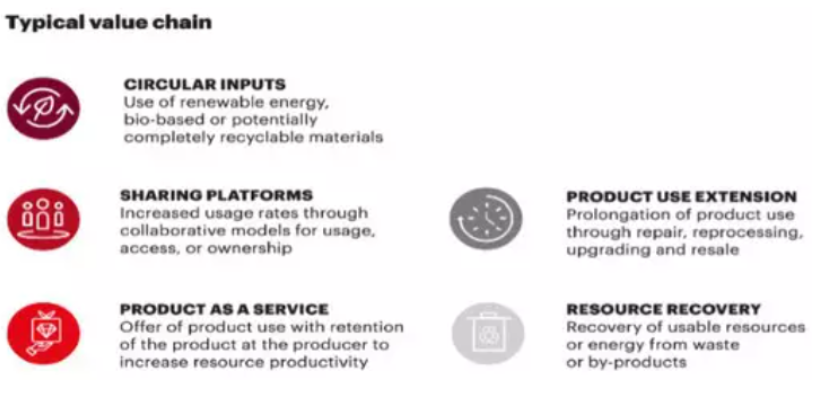
The Five Circular Business Models, Image Source: WEF via Accenture
“The circular economy is one approach that can enable us to keep pace with technological innovation, support integrated and sustainable ecosystems, and move us towards a brighter future” — Klaus Schwab, World Economic Forum
Powering the move towards a circular economy is the so-called fourth industrial revolution, which will lead to the fusion of our physical, biological, and digital identities — a new era of transhumanism.
According to WEF founder Klaus Schwab, “The Fourth Industrial Revolution will impact every aspect of our lives. In order to thrive within this new global dynamic, we need to adopt new business models and norms.
“The circular economy is one approach that can enable us to keep pace with technological innovation, support integrated and sustainable ecosystems, and move us towards a brighter future.”
“The Circulars Accelerator is advancing the global transition to a more circular economy” — TheCirculars.org
The World Economic Forum has teamed up with Accenture on a startup accelerator for the circular economy called the Circulars Accelerator, which directly supports the “you’ll own nothing and you’ll be happy” agenda that seeks the destruction of individual ownership in favor of a rent-based, circular economy where you will own nothing and all products have become services.
The Circulars Accelerator is a collaboration between the World Economic Forum, Accenture, Anglo American, Ecolab, and UpLink — the WEF’s innovation platform for the United Nations’ Sustainable Development Goals (SDG).
Individually, the 17 startups in the 2022 cohort are doing incredibly innovative work that can indeed make the world a better place, but when placed in the context of the WEF’s vision of a future where you don’t own anything, the Circulars Accelerator becomes a vehicle for accelerating the great reset agenda.
“Whatever you want, you’ll rent” — 8 Predictions for the World in 2030, WEF, 2016
“Everything you considered a product, has now become a service” — WEF Young Global Leader Ida Auken, 2016
Individually, the 17 startups are cutting down on toxic waste, providing clean drinking water to those in need, and building sustainable housing, along with many other positive benefits for humanity.
Each startup is looking to change the world in their own way, often starting at the local level to serve their respective communities.
However, when taken under the wing of the WEF, their solutions can be exploited to serve the great reset agenda.
For example, included in the 2022 cohort is Reflaunt, which enables customers to take their old clothes and resell them on the brand’s website that they purchased them from in exchange for store credits.
It’s circular, sustainable, cuts down on waste, and gives value back to the customer via a glorified exchange program.
But when viewed through the great reset lens, the customer isn’t given cash back; they are given store credit, so they are forced to give the money back to the retailer.
This is akin to programmable money and it normalizes the concept behind Central Bank Digital Currencies (CBDC) that turn money into permissions-based vouchers with restrictions on what you can or can’t buy.
“There is a global price on carbon” — 8 Predictions for the World in 2030, WEF, 2016
Another major component of the great reset is the concept of ESG, which stands for Environmental, Social, and corporate Governance.
This is a scoring method for businesses that works in the same vein as a social credit system.
Businesses that have a low ESG score will not receive funding and will be shunned by stakeholders for having things like a high carbon footprint, or not having enough diversity or social justice initiatives.
“Companies that meet the [ESG] criteria tend to have some advantages, namely: cost reduction; the high long-term competitiveness; the minimization of regulatory and legal interventions; increased employee productivity; and mainly the optimization of socially positive investments” — GreenPlat, Circulars Accelerator 2022 Startup Cohort
Circulars Accelerator 2022 startup GreenPlat provides businesses with “solutions that make you meet the ESG criteria.”
On the one hand, this is a great tool for companies looking to cut down on cost, waste, and damage to the environment to be more profitable, helpful to customers, and eco-friendly.
On the other hand, GreenPlat’s system is also geared towards generating ESG certificates that can be used to either punish or reward businesses.
According to GreenPlat, “Companies that meet the [ESG] criteria tend to have some advantages, namely: cost reduction; the high long-term competitiveness; the minimization of regulatory and legal interventions; increased employee productivity; and mainly the optimization of socially positive investments.”
“To achieve a better outcome, the world must act jointly and swiftly to revamp all aspects of our societies and economies […] In short, we need a ‘Great Reset’ of capitalism” — Klaus Schwab, WEF, 2020
The great reset, as laid out by WEF Founder Klaus Schwab, is a reset of capitalism — a switch from the traditional, supply-and-demand, market-driven “shareholder capitalism” towards “stakeholder capitalism,” where unelected stakeholders like investors, bankers, and technocrats are given all the power to influence markets and set policies.
Thus, GreenPlat’s ESG scoring can become a tool for unelected stakeholders to reward those who do their bidding while punishing those who do not comply.
GreenPlat’s solutions can do wonders for companies and the environment without the need for ESG scoring, but ESG scoring is part of the WEF’s vison of top-down control from elite billionaires dictating what businesses can and can’t do.
“We are eating much less meat” — 8 Predictions for the World in 2030, WEF, 2016
Another WEF prediction for 2030 is you will eat less meat — an occasional treat, not a staple.
The unelected globalists are also looking to change humanity through diet, and their push to consume less meat in favor of alternative proteins and lab-grown food is an agenda that has more to do with climate policy and making stakeholders richer and more powerful than anything else.
Done Properly is another startup in the 2022 Circulars Accelerator cohort that harnesses the power of fermentation to create alternative proteins that are claimed to be healthy and tasty.
“From the beginning we have researched and developed solutions in pursuit of the evolution of the humankind” — Done Properly, Circulars Accelerator 2022 Startup Cohort
There’s nothing inherently wrong with with what Done Properly is doing, although it may be a bit jaunting to hear them say, “From the beginning we have researched and developed solutions in pursuit of the evolution of the humankind.”
But it’s the WEF agenda to cut meat out of our diets that’s most worrisome — not because meat is essential for everybody — but because once again, it’s a top-down agenda that doesn’t leave you or I any choice in the matter.
Companies like Done Properly can co-exist alongside those in the meat industry, but the WEF wants to drastically reduce the latter in favor of the former as a matter of unelected policy.
“The Circulars Accelerator connects ground-breaking circular economy-focused entrepreneurs with industry leaders to scale innovation across the value chain” — World Economic Forum, 2022
Only a select few startups from the Circulars Accelerator have been covered in this article so far, and the reason is to show how their solutions can be twisted by the WEF to further its great reset agenda.
In the 2022 cohort, there are many other startups that are arguably doing work that is greatly needed in the communities they serve, such as I-Drop’s WaterPod that’s bringing refillable clean water to grocery stores in Africa.
Mycocyle is another fascinating startup in the 2022 cohort.
This company inoculates waste with mushroom mycelium, which breaks down the waste while producing a byproduct that can be converted into reusable materials for affordable housing and other building projects.
If we are to live in the pods and eat the bugs, this is the way to go.
Mycologist Paul Stamets experimented with this mycelial method over a decade ago with oyster mushrooms on diesel and petroleum waste with great success, and he described the experience in a 2008 Ted talk (see video below).
“Product as a Service: Retaining ownership of products and selling benefits through a service model” — The Circular Economy Handbook, Accenture, 2021
The startups in the 2022 Circulars Accelerator are truly doing amazing things on their own.
But their potential to further the great reset agenda of a society where “you’ll own nothing and you’ll be happy” is what appears to make them attractive to the World Economic Forum and partners.
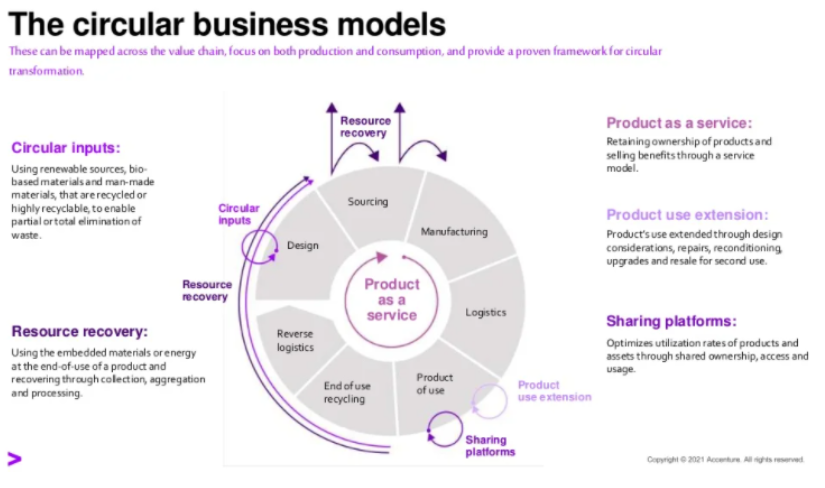
Image source: Accenture
“In order to shape the future, you have first to imagine the future, you have to design the future, and then you have to execute it” — Klaus Schwab, The Great Narrative Meeting, 2021
One need only look at the proposition of the circular economy’s Product as a Service business model to see how the WEF and partners envision this future:
“Product as a Service: Retaining ownership of products and selling benefits through a service model.”
Speaking at The Great Narrative Meeting in Dubai in November, 2021, Klaus Schwab said:
“In order to shape the future, you have first to imagine the future, you have to design the future, and then you have to execute it.”
The circular economy is yet another example of a top-down agenda coming from unelected globalists looking to reset the world in their image without ever putting it to a vote by the will of the people.
The technocratic future they are looking to shape, design, and execute is one of complete control over society.
Tim Hinchliffe is the editor of The Sociable. His passions include writing about how technology impacts society and the parallels between Artificial Intelligence and Mythology. Previously, he was a reporter for the Ghanaian Chronicle in West Africa and an editor at Colombia Reports in South America. tim@sociable.co
From sociable.co
